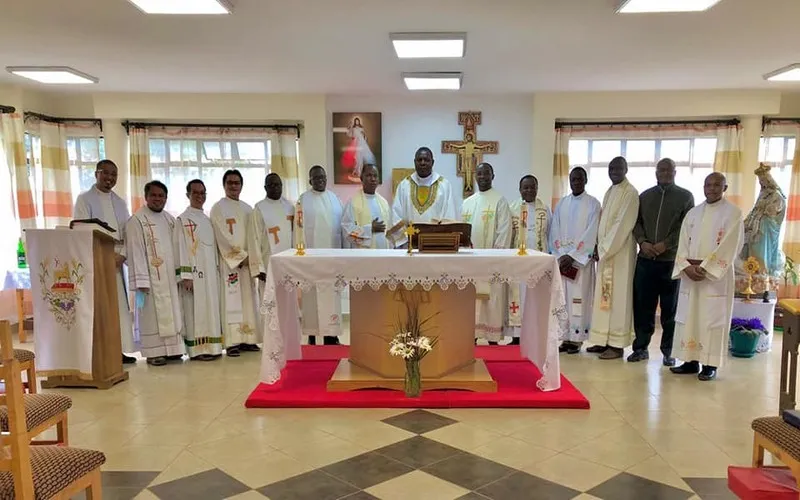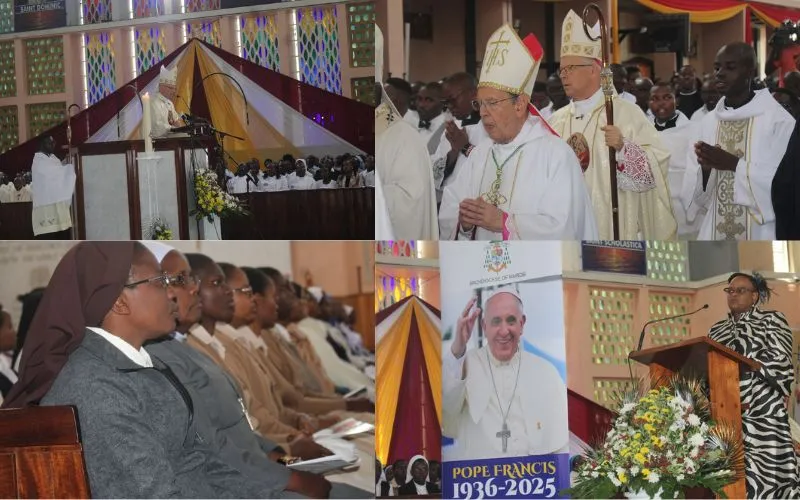Nairobi, 10 September, 2021 / 9:27 pm (ACI Africa).
One of the greatest sources of joy in the mission to the margins is journeying with people who have never known about Christianity until they receive the Sacraments of the Catholic Church, Fr. Bonaventure Luchidio who coordinates the work of Priests working in Kenya’s hardship missionary territories has said.
Fr. Luchidio, the National Director of the Pontifical Mission Societies (PMS) of the Kenya Conference of Catholic Bishops (KCCB) says that Priests still find it gratifying when one person takes years to learn the Catechism and to eventually receive the Sacrament of Matrimony or any other Sacrament of the Church.
“Our Priests always share how it took them years to journey with people through Catechism and the joy it brings. I have heard stories of how it takes years of hard work for an outstation to get even one person married in Church,” Fr. Luchidio says in an interview with ACI Africa.
The PMS Kenya Director shared details of a meeting that brought together Fidei Donum Priests serving in various missionary territories classified as geographical peripheries owing to their challenges of evangelization.
In the Tuesday, September 7 interview following their weeklong meeting that ended September 3, Fr. Luchidio said that the Priests spoke broadly on the joy of serving the country’s poorest of the poor.







